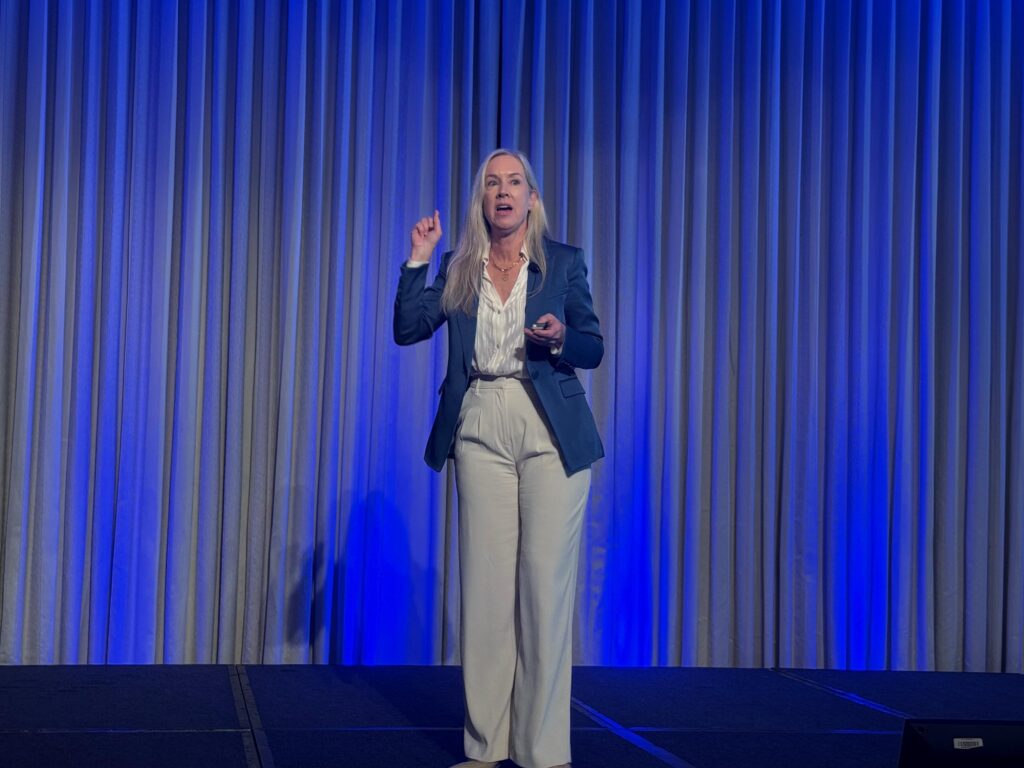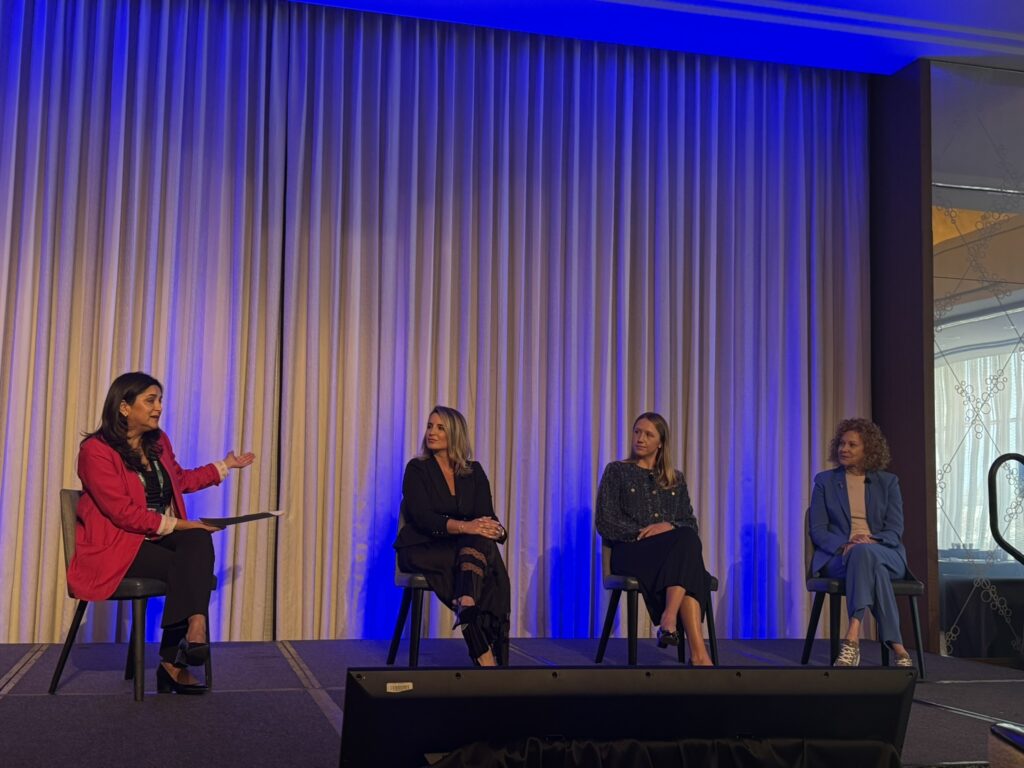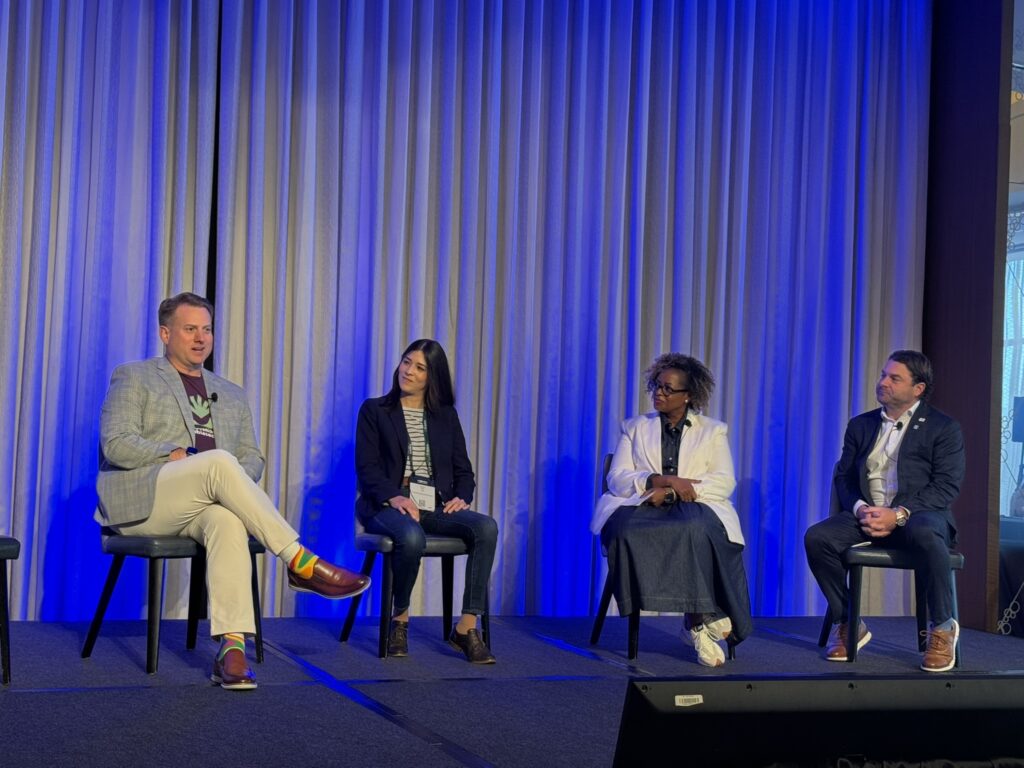WFA: Building Confidence, Community and Career Pathways
At the recent WFA Summit, Melissa Huizer, WFA Mentorship Lead, sat down for an in-person conversation with Sophie Bell, a young Irish farmer, civil servant and freelance marketing professional working in and around agriculture. Their discussion offered an honest look into why mentorship matters, how confidence grows through community, and what it means to lift others as […]
Embedding ESG Where It Matters Most: Inside Alltech’s Approach to Sustainable Impact
As expectations around environmental responsibility, social impact, and governance continue to rise, organisations are being challenged not just to articulate bold visions, but to translate them into measurable action at scale. At Alltech, that challenge is being addressed through a newly embedded approach to ESG, one designed to be practical, data-driven, and deeply integrated across global […]
Why the WFA Awards Matter and Why Your Nomination Counts
Every year, the Women in Food & Agriculture Awards shine a spotlight on the people who are quietly, consistently and boldly shaping the future of our industry. Across food and agriculture, we often hear the same message: the people driving real progress rarely receive the recognition they deserve. The WFA Awards are your chance to […]
WFA: Americas – Horizon Organic’s Patricia Stroup Says Influence, Branding Key to Leadership

Patricia Stroup, Chief Operating Officer of Horizon Organic and former Chief Procurement Officer at Nestlé SA, said at Expana’s Women in Food and Agriculture (WFA) conference in Chicago today that effective leadership hinges on influence, personal branding and stakeholder diplomacy, not rank or authority alone. Stroup outlined a framework that can help advance through a […]
WFA: Americas: Leaders Urge Skill-Building and Responsible Deployment of AI

A panel featuring Luana Clapis, Chief Data Officer of Expana; Natalie McCaffery, AI-LEAF Institute Youth Education Project Lead at AIVO Institute; and Mary Snapp, Vice President for Strategic Initiatives at Microsoft, held during Expana’s Women in Food & Agriculture in Chicago discussed how artificial intelligence is reshaping the food and agriculture sectors and what leaders […]
WFA: Americas – Inclusive Culture and Building Teams that Endure

Expana’s Women in Food & Agriculture event in Chicago brought together industry leaders to discuss diversity, inclusion, and culture within the sector. Today (September 22) the event’s delegates attended a panel on belonging by design explored building teams and cultures that endure. Panelists included moderator Denitresse Ferrell, Founder & CEO of Culture Refinery; Christopher Bylone […]
5 minutes with… Microsoft’s Mary Snapp on AI Innovation in Food and Farming
With AI’s potential to reshape the agrifood sector at the top of every leader’s agenda, few bring as much insight and experience to the conversation as Mary Snapp. Over nearly four decades at Microsoft, she broke ground as the company’s first female lawyer and later led major initiatives across engineering, product development, and global philanthropy. […]
Sodexo’s Chantal Randolph-Schall on How You Move From Burnout to Balance
As the corporate world continues to evolve post-pandemic, leaders like Chantal Randolph-Schall are helping redefine what sustainable success looks like for women in demanding industries. Chantal, Vice President of Operations for Sodexo’s Corporate Services segment, will be hosting a workshop on “Enhancing Productivity Without Burnout” at WFA: Americas, taking place on Monday, September 22 at […]
Finding the Perfect Match: Behind the Scenes of the WFA Program
In food and agriculture, the right guidance at the right time can be truly life-changing. That’s exactly why the Women in Food and Agriculture (WFA) Mentorship Program was created- to connect women across the industry with mentors who understand their challenges, support their goals, and help them thrive. Since its launch in 2021, this […]
Why Attend the WFA: Americas Summit
The WFA: Americas Summit is more than just an industry event. It’s a powerful platform where women leaders in agrifood come together to chart the course for a more resilient, inclusive, and innovative future. Taking place September 21–22, 2025, in Chicago, this gathering celebrates the trailblazing women whose leadership is transforming the food and […]

